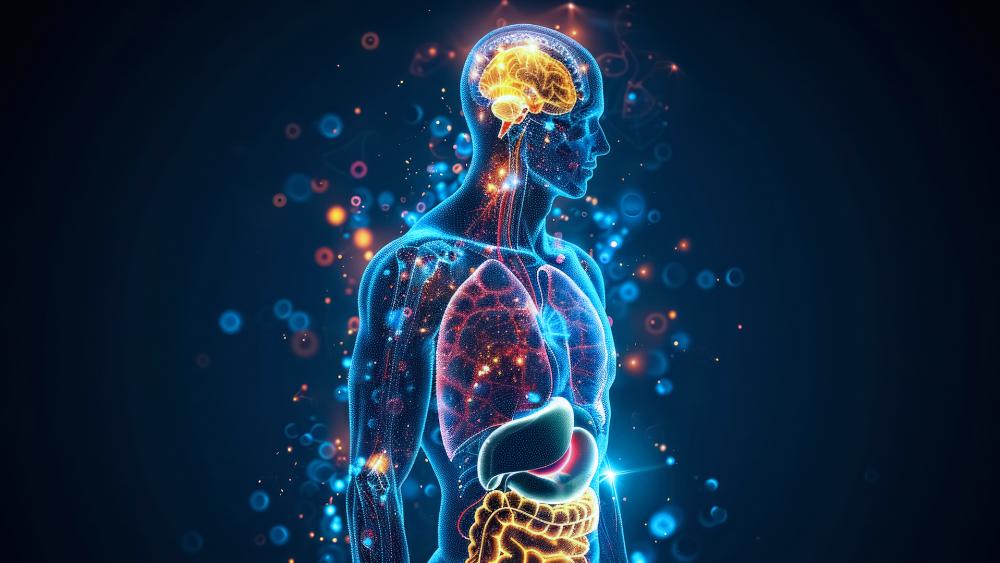Fifty million Americans live with some type of mental health condition, such as depression and anxiety. In addition to that, six million suffer from dementia, including Alzheimer's disease.
For over a decade, best-selling author Steven Gundry, M.D., a heart surgeon and the director and founder of the International Heart & Lung Institute as well as the Center for Restorative Medicine, has recommended that patients balance their gut microbiome between good and bad bacteria in the intestines. In addition to better overall physical health, he also noticed the bonus of improved mental health.
"Almost everybody, after six months or so, would say, 'I've weaned myself off of antidepressants. I don't need them anymore,'" Dr. Gundry told CBN News. "And one of the things that almost every one of them said was, 'You won't believe how much my brain works now. I had no idea how much fog I was in.'"
A Closer Look
That prompted Dr. Gundry to look closer at the link between our brain health and bacteria in our bodies. In his new book, The Gut-Brain Paradox: Improve Your Mood, Clear Brain Fog, and Reverse Disease By Healing Your Microbiome, Gundry reveals the discovery of specific intestinal bacteria that affect the production of neurotransmitters, our body's chemical messengers.
"There are absolutely different bacteria in our gut that associate with being depressed or being anxious," he said. "And we can identify those bacteria. And they get out of balance with the other bacteria in our gut."
The same is true when it comes to our cravings.
"There are bacteria alterations in the microbiome, in our intestines, that drive addictions to nicotine, to alcohol, to even hard drugs like morphine or fentanyl," he said. "And what's really fascinating is you can actually identify these bacteria."
Alzheimer's Disease
Dr. Gundry said a person's diet remains a key factor in whether their gut microbiome is healthy. Consuming too much sugar and processed foods can cause an overgrowth of bad bacteria and not enough good bacteria.
The diet's impact on Alzheimer's disease is demonstrated in a study comparing Nigerians carrying the ApoE-4, the so-called "Alzheimer's Gene," to the same number of Americans with it. Fewer Nigerians developed Alzheimer's. Nigerians eat a diet mainly consisting of unprocessed fruits, vegetables and meat, while a majority of Americans eat large quantities of processed foods that are high in sugar.
"The diet between these two areas was completely different. And so it was the diet of these people that made the difference in the outcome," he said.

Dr. Gundry says the standard American diet (SAD) can perforate the thin lining of the intestines, allowing substances to leak out of the gut, triggering chronic inflammation, including inflammation of the brain, a hallmark of brain disorders.
"So Parkinson's, for instance, comes from the gut, not starting in the brain. Alzheimer's comes from the gut, not starting in the brain," he said. "So we've really done a complete 180-flip over how we should go about preventing these diseases, and how we should go about treating these diseases."
Probiotics and Prebiotics
Dr. Gundry recommends consuming probiotic foods and drinks, which contain live "good" bacteria and are often fermented. Examples include kimchi, kombucha, yogurt, and kefir."
He says it's important to feed those bacteria high-fiber foods such as fruits and vegetables. These foods for the bacteria are called prebiotics. Some examples are asparagus, onions, jicama, and kale.
He issues a warning, however, about foods containing lectins, such as tomatoes, wheat, and beans.
"I can heal the wall of your gut. I can stop it being leaky," he said. "But if you keep swallowing razor blades, which are lectins, you'll just slice it right back open."
Gundry notes that proper preparation of certain foods can reduce the lectin content.
"The more you stay away from grain products except sorghum and millet, the more you use pressure-cooked beans. And there's several companies like Eden and Jovial, they pressure cook their beans. And the more you peel and seed tomatoes and peppers and even white potatoes, the better you're going to do," he said.
Oral Health and Skin
In addition to paying attention to the bacteria in our gut, Dr. Gundry reminds us to maintain good oral health to keep the "bad" bacteria there under control.
"We know there's strong association between certain bacteria in the mouth and developing brain fog and dementia, because if you think about it, the mouth and nose is right next to the brain," he said.
He recommends that patients regularly brush, floss, and visit the dentist.
Finally, Dr. Gundry points out the need to balance the microbiome on our skin. "Our skin has over 700 different species of bacteria," he said. "In fact, every orifice that communicates with the outside world has its own species of bacteria."
He recommends cleaning our bodies and our homes with mild cleansers, such as regular soap and water, but not stripping them of all bacteria. "One of the worst things you can do is use antibacterial soaps," he said.
So while scientists once thought all bacteria were bad and should be killed, the latest research shows only some can do harm, while others are quite helpful for maintaining a healthy body and mind.
***Please sign up for CBN Newsletters and download the CBN News app to ensure you receiv the latest news from a distinctly Christian perspective.***
RELATED:
Did you know?
God is everywhere—even in the news. That’s why we view every news story through the lens of faith. We are committed to delivering quality independent Christian journalism you can trust. But it takes a lot of hard work, time, and money to do what we do. Help us continue to be a voice for truth in the media by supporting CBN News for as little as $1.












 Support CBN News
Support CBN News







